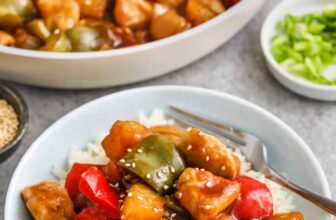Legendary bodybuilders like Jay Cutler and Ronnie Coleman earned plenty of praise and Mr. Olympia hardware by constructing hulking physiques that included sculpted shoulders, killer quads, and bulging biceps. While most people don’t have plans to pose on stage someday, many lifters do have aspirations to walk around with muscular arms that look good in a tank top.
Although the traditional biceps curl will help you inch closer to growing the guns of your dreams, there’s another great biceps exercise that belongs in your training program: the preacher curl. With this no-nonsense biceps builder that makes one muscle group the star of the show, you can look forward to filling out the sleeves of your t-shirt even better.
Below, you’ll learn everything from the proper form to programming tips to unique variations so you can achieve a fantastic pump and long-term results from the almighty preacher curl.
How to Do the Preacher Curl
When conducted with proper form, the preacher curl will put your biceps and forearms through a grueling test of muscular strength and endurance. You can perform the movement with various free weights, including dumbbells, a barbell, or an EZ curl bar. Whatever piece of equipment you choose, you will also need a preacher curl bench to support your upper body during this isolation exercise.
Here’s a step-by-step guide that will put you in the right position to get the most out of this biceps curl variation using an EZ curl bar.
Step 1 — Set Up
Sit down on the preacher curl machine and adjust the seat height so your upper arms and chest rest on the bench pad. Or, if there is no seat, stand behind the preacher curl bench so your arms and chest are in the correct position. You should have a slight forward lean so that the pad touches your armpits. Then, use an underhand grip to grab the curl bar.
Step 2 — Curl the Weight
With your chin tucked, wrists neutral, and elbows extended fully, contract your biceps and curl the bar toward your shoulders. Squeeze at the top of the movement and hold for one to two seconds.
Step 3 — Lower to Starting Position
Execute the eccentric portion of this curl exercise by slowly straightening your elbows. Maintain complete control during the descent, carefully lowering the curl bar back to the starting position before repeating the full sequence for the desired number of reps.
[Related: How to Do the Reverse Biceps Curl for Complete Arm Development]
Preacher Curl Mistakes to Avoid
Want to get the best return on your investment in building bigger biceps? Here are a few common mishaps people make when performing preacher curls that can prevent you from reaping the rewards of your training program.
Taking the Strength Training Approach
Working with intense loads for a limited number of reps will not yield the best results if you’re focused on maximum biceps growth. While that style of training works well for compound movements like the back squat, bench press, and deadlift, you shouldn’t treat the preacher curl like a strength-building exercise.
Instead of going ultra-heavy, use a manageable weight that you can perform for sets of 10-12 repetitions with perfect form. This will provide a better stimulus for hypertrophy than a low-rep, high-intensity protocol more suited to powerlifting.
Incorrect Setup
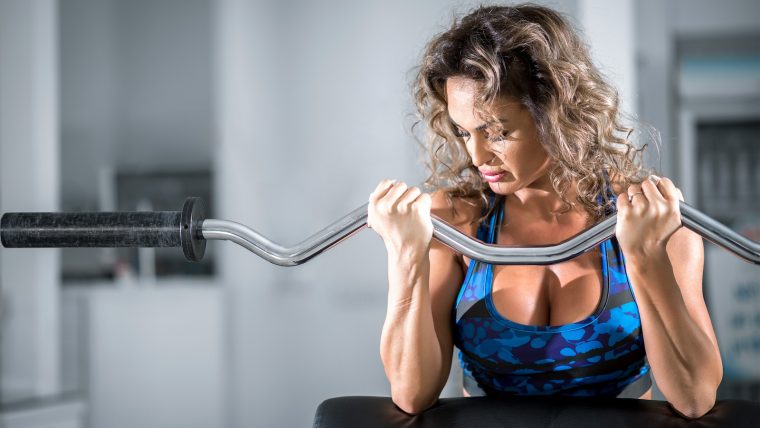
Getting in the proper position should be the priority when you’re preparing to perform the preacher curl. That means your chest and upper arms should be in contact with the pad at all times. Having the bench set too low or too high will make it difficult (if not impossible) to execute the movement correctly, causing you to leave gains on the table by shifting the focus away from your biceps.
Failing to Use Full Range of Motion
The goal of the preacher curl is to fully extend and flex your elbows through a full range of motion. However, failing to extend your elbows past 90 degrees means you’re leaving potential gains on the table. While partial reps can be an effective way to finish off a set, focusing on fully stretching and contracting your biceps can maximize your muscle-building efforts.
[Related: Jon Call “Jujimufu” Absolutely Crushes a 161-Pound Preacher Curl PR]
Benefits of the Preacher Curl
What makes the preacher curl such a popular choice for lifters of all shapes and sizes? Let’s take a look at some of the ways it pays off to pencil this biceps exercise into your workout routine.
Direct Biceps Development
A true isolation exercise, the preacher curl provides a direct route to growing your biceps by removing your ability to use your lower half for any assistance. The angle of the bench pad allows you to completely stretch the muscle and maximize time under tension — a key factor in hypertrophy training.
Of course, squeezing at the top of the movement is critical for getting the most muscle-building returns. Overall, the preacher curl challenges your biceps during the concentric and eccentric parts of the exercise to create a fantastic stimulus for sculpting well-developed arms.
Assists with Pulling Exercises
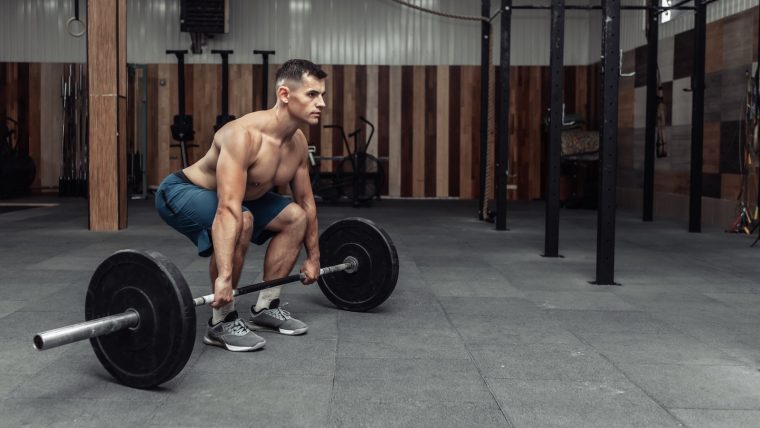
If you want to be more successful at chin-ups or other pulling exercises, the preacher curl can assist with those efforts. Having strong biceps will allow you to move the weight more efficiently and avoid overtaxing other muscle groups as you perform pull-based exercises.
Plus, developing stronger biceps via the preacher curl can help with other compound movements. For example, you should see an improvement in your deadlift as you progress with your biceps training. And whether you choose the chest-supported or bent-over row, you should perform better at these back-day staples with stronger bi’s.
Eliminates the Cheating Element
Chances are you’ve probably seen at least a few gymgoers contorting their bodies to swing out some poorly executed curls before finally admitting defeat. However, sacrificing form to execute any exercise makes little sense — especially if you’re concerned about maximizing muscle growth.
Luckily, though, the preacher curl curtails your ability to cheat by keeping you grounded and eliminating the idea of using your legs for a boost. Once you set up properly on the machine and grab your free weight of choice, your biceps will quickly learn what it means to be isolated. More importantly, you’ll understand the value of performing slow, controlled reps using a full range of motion — and zero cheating.
[Related: Jay Cutler Breaks Down His Workout to Build 20-Inch Arms]
Muscles Worked by the Preacher Curl
Undoubtedly one of the best isolation exercises for growing your biceps, the preacher curl engages a few other arm muscles, too. Here’s what you can expect to hit once you’re set up on the bench.
Biceps Brachii
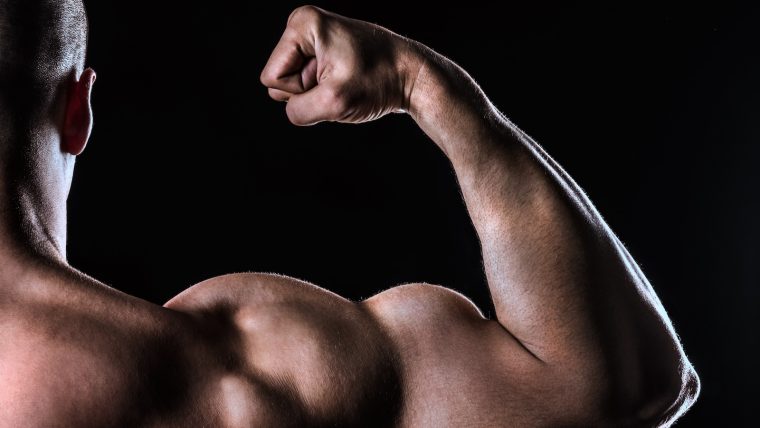
This two-headed muscle is the primary mover for the preacher curl. You can specifically target the long or short head via your hand placement if you’re using an EZ curl bar or a barbell. A narrow grip will lead to better engagement of the long head. Meanwhile, the wider you go, the more you will recruit the short head of your biceps brachii.
Brachialis
A flexor muscle of the forearm, the brachialis helps with elbow flexion and is also heavily involved due to the angle of a preacher curl. Training this muscle consistently will help you develop stronger, thicker forearms.
Brachioradialis
Another flexor muscle located near the elbow, the brachioradialis not only helps with flexion but also with supination or pronation depending on the rotation of the forearm. (1) During the preacher curl, it helps stabilize the elbow joint.
Who Should Do the Preacher Curl
No matter if you’re training for a bodybuilding show, looking to improve your other lifts, or just trying to gain strength and size in your arms, you shouldn’t hesitate to call upon the preacher curl for support.
Strength Athletes
Powerlifters and Olympic weightlifters can take advantage of preacher curls to prepare them to dominate in pulling exercises like deadlifts, cleans, and snatches. Growing bigger, stronger biceps should pay off when it comes time to perform — and the aesthetic benefits don’t hurt, either.
Bodybuilders and Physique-Focused Individuals
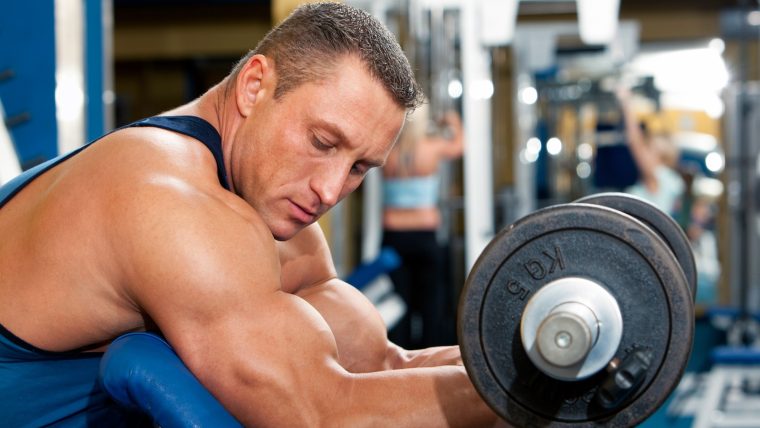
No bodybuilder wants to disappoint on the back double biceps pose. Isolating this two-headed muscle via the preacher curl will help your arms pop on stage, especially if you pair it with other biceps-centric movements like close-grip lat pulldowns and chin-ups. And even if you’re focused on constructing a physique for non-competitive reasons, you can’t go wrong with a curl exercise that isolates your biceps and forearms.
Recreational Lifters
Beginners and general lifters can use the preacher curl to develop strength and endurance in their biceps without having to worry about cheating reps by going too quickly or not using the full range of motion. This curl variation isn’t overly complicated to master, but it does offer plenty of muscle-building upside.
[Related: Hammer Curls vs. Biceps Curls: The Battle for Bigger Arms]
How to Program the Preacher Curl
Whether you’re new to lifting or looking to add another biceps exercise to your classic bodybuilding split, you shouldn’t hesitate to incorporate the preacher curl into your exercise program. Determining the number of sets and reps (as well as the ideal load) depends on your goals, as there are different methods to achieve each one.
For Beginners: Perform a warm-up set of eight to 12 reps with a light weight to ensure you’re using proper form. Using a moderate weight, complete two to three working sets of eight to 12 reps.
For Muscle Growth: Complete three to four sets of eight to 12 reps with a moderately heavy weight. For even more gains, decrease the weight and perform a drop set until failure.
For Muscular Endurance: Select a light-to-moderate weight that you can curl for 15 to 20 reps. After you finish your first set, rest briefly for 20 to 60 seconds before repeating for two more sets.
[Related: Try These Biceps Workouts Without Weights for Muscle, Strength, and Fat Loss]
Preacher Curl Variations
From changing your grip to swapping out the EZ bar preacher curl for a dumbbell-based version, some simple tweaks can shift this exercise in a different direction. Here are some variations you can consider implementing to keep things fresh in the gym:
Dumbbell Preacher Curl
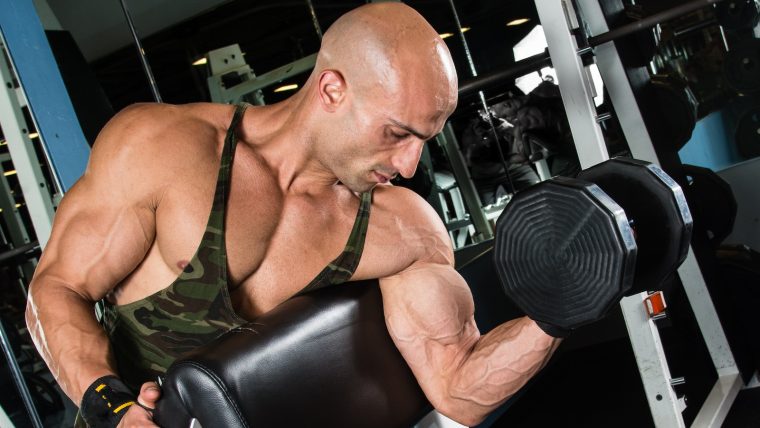
Leaving the barbell behind for a pair of dumbbells will open the door to new bicep-building possibilities. Not only can you work on any imbalances by training unilaterally, but you can also experiment with different grips to change the stimulus. For example, hammer-style preacher curls with a neutral grip will involve your forearm muscles more.
Close-Grip Preacher Curl
Using the same setup as the traditional preacher curl, this version targets the long head of the biceps by having you put your hands closer together.
Wide-Grip Preacher Curl
You can employ the opposite strategy to hit the short head by using a wide grip. For the best results, incorporate both grip variations into your biceps training program.
Reverse Preacher Curl
Whether you use a barbell, EZ curl bar, or dumbbells, a reverse preacher curl will force your brachioradialis to rise to the occasion. Grasping the bar with a pronated (palms-down) grip and keeping your arms in a fixed position to curl the weight makes this biceps exercise particularly useful for developing stronger forearms.
[Related: The Best Arm Workouts for Beginners, With Dumbbells, and More]
Preacher Curl Alternatives
Don’t have access to a preacher curl bench? You can still train your biceps with these muscle-building alternatives.
Incline Dumbbell Biceps Curl
Arguably the most challenging biceps exercise, the incline dumbbell curl swaps out the preacher curl bench for an adjustable weight bench. Sitting on a bench in the incline position provides a larger range of motion by putting your biceps into an even deeper stretch. Plus, stabilizing your body against the bench minimizes your ability to use momentum.
Concentration Curl
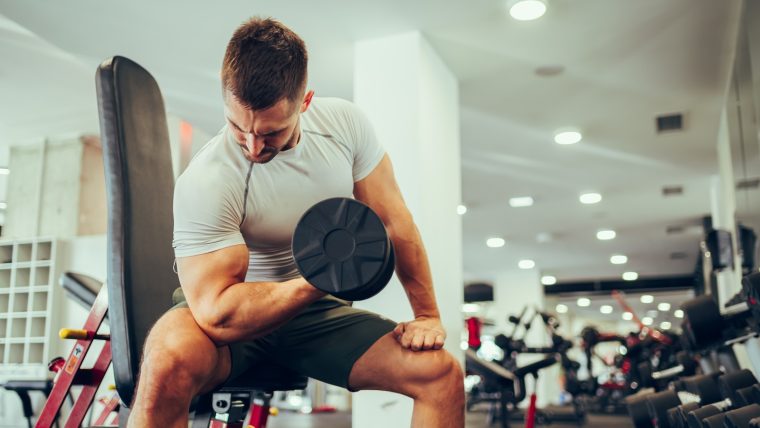
Similar to the preacher curl, the concentration curl keeps your upper arm in a fixed position that stabilizes your shoulder. This isolation exercise is an excellent example of the benefits of unilateral training, as you get to attack each side independently while your triceps remain anchored to the inside of your knee to make your biceps do all the work.
Standing Barbell Curl
An option that doesn’t involve sitting down, the standing barbell curl has withstood the test of time as one of the most basic, yet effective biceps exercises. Unlike some of the other alternatives and variations, this movement forces you to engage your glutes and core as you curl the weight. In addition, it also activates your anterior deltoid when the barbell is in the fully curled position.
Spider Curl
Take advantage of gravity and leverage to enhance your muscle-building experience by incorporating spider curls into your training program. Also referred to as the reverse incline curl, this exercise has a similar set-up as the chest-supported row. But instead of pulling your elbows back to target your lats, rhomboids, traps, and rear delts, you’ll contract your biceps to curl a barbell (or dumbbells) toward you.
Let Your Gains Preach for Themselves
Building bulging biceps requires plenty of high-quality reps that recruit the two-headed muscle to fully stretch and contract. While there are ample curl variations that can help you achieve that rounded look, the preacher curl deserves to be near the top of your biceps exercise list because it makes you stay strict with your form and removes momentum from the equation. Earmark it for pull day or whenever you work on your arms and get ready to show off the fruits of your labor when you flex.
FAQs
Preacher curls are great for promoting biceps growth and development. As an isolation exercise, it targets your biceps muscle without letting you use your lower half for assistance with squeezing out extra reps.
To perform a preacher curl with proper form, you must set up a preacher curl bench so that your upper arms and chest are in contact with the pad. Using an EZ curl bar, barbell, or dumbbells, contract your biceps and lift the weight toward your shoulders. Squeeze at the top, then slowly lower the weight back to the starting position.
The ideal angle for a preacher curl bench ranges between 45 to 55 degrees. This gives you ample room to stretch and contract your biceps fully for maximum muscle growth and overall development.
References
- Lung BE, Ekblad J, Bisogno M. Anatomy, Shoulder and Upper Limb, Forearm Brachioradialis Muscle. [Updated 2023 Jul 25]. In: StatPearls [Internet]. Treasure Island (FL): StatPearls Publishing; 2023 Jan-. Available from: https://www.ncbi.nlm.nih.gov/books/NBK526110/
Featured Image: lunamarina / Shutterstock
Trending Products














